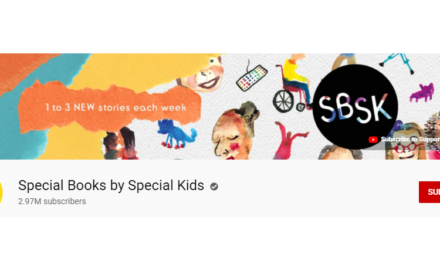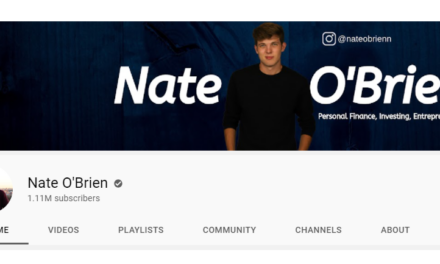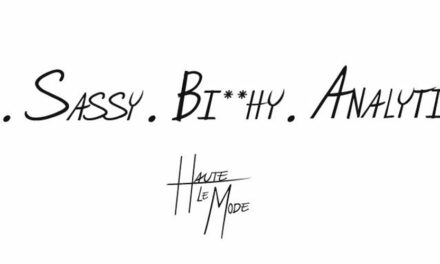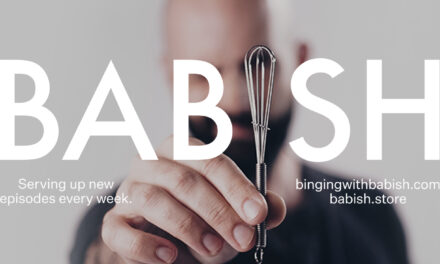
OCTOBER 25, 2022
In This Issue: It’s time to tackle what may have saved the Try Guys from the affair disaster. We stan a professor who explains all and give our take on how long trade deals will exist in this economy.
full tilt
Prepare for the Worst (or Not-So-Good)
Four guys left Buzzfeed to co-create the Try Guys and grew it to nearly 8M followers on YouTube, a podcast, a book, and a limited series on The Food Network.
Now, four years later, the “Wife Guy” – abruptly departed the business after it was made public he had a workplace affair.
Are you prepared if a co-creator or business partner violates your trust, the brand, or the law?
Probably not.
While we don’t know what protections the Try Guys have, we do know an operating agreement is essential for co-creators and business partners. So Ruth Carter, an attorney who also operates Geek Law Firm, volunteered to answer some questions.
What is an operating agreement, and why is it important?
An operating agreement is the master contract between the owners of a company that addresses how they’re going to operate their business. It should address issues like the delineation of company responsibilities and determination of how they’re going to deal with problems when they occur.
When should creators enter into an operating agreement?
You want to do this at the beginning of starting the business when everyone is happy, excited, and thinking about what’s in the best interest of the company.
What if the business is already operating?
Every company with more than one owner needs an operating agreement. This is especially true if you’re going into business with a friend, relative, or spouse. Business breakups can be as messy as a marital divorce.
What should be included in the agreement?
A company can tailor this agreement to their specific needs. Here are some of the questions I ask:
- What are each owner’s primary responsibilities within the company?
- How often will the owners have meetings to discuss the business?
- How much of the company’s money can each owner spend without having to consult the other owners?
- How much money, if any, have the initial owners given to the company for initial capital contributions? Under what circumstances will the owners be required to give additional capital contributions to the company?
- How will the owners make decisions? Will it be a vote based on the percentage each owner owns of the business?
- Do certain situations require a unanimous vote by all the owners?
- If there is a deadlocked vote, how will you resolve it?
- Under what circumstances can an owner be kicked out or removed from the business?
- What happens if an owner dies, becomes disabled, or is declared legally incompetent?
Should the operating agreement include the repercussions?
For more serious situations, I’ll start with the question, “Under what circumstances can the owners vote an owner ‘off the island?’” This is a non-threatening way to open a discussion about what the owners’ deal breakers are.
It’s exceptionally difficult to parse out all the what-ifs, but it’s good to have these discussions up front. In regards to the Try Guys, they may have documented the company values and were able to point to them to show that what Ned did violated those values. Perhaps they had a discussion early when they started their business about removing an owner when their extracurricular, probably legal, behavior threatened the reputation of the company per a unanimous vote by the remaining owners.
– Ann Gynn
Learn what to do if an operating agreement term is violated and more, and why a criminal conviction may not be the best deal breaker.
For even more advice and lessons for the operations side of your content business, join us for Creator Economy Expo in May 2023. Prices go up next month, so get your ticket today.
in partnership with HubSpot
Did you know that 88% of brands have a dedicated budget for working with influencers and creators, and community is a top priority for marketing strategy in the year ahead? The best brand-creator partnerships start with getting aligned on goals, audience, and brand mission. Explore data and insights to learn more about navigating the creator economy and working with brands in the brand-new report “The Business of Creators” from The Tilt and HubSpot.
we stan Dave Farina
Entrepreneur: Dave Farina
Biz: Professor Dave Explains
Tilt: Simply explained science literacy
Scene: YouTube (2.19M), Twitter (5.7K), Patreon (287), Is This Wi-Fi Organic?: A Guide To Spotting Misleading Science Online
Snack Bites:
- As a teacher, Dave Farina thought recording his lectures and posting them to YouTube would be a good passive income stream.
- About four years later, Dave turned Professor Dave Explains All into a full-time content business, earning about the equivalent of a teacher’s salary.
- When Dave no longer had access to a professional studio, he shifted his format so his physical appearance on screen was no longer needed.
Why We Stan: Dave recognized a gap in self-learning on YouTube and created content to fill it. He also followed a path similar to most content entrepreneurs, balancing paying jobs and building his content business. Now, it’s not only his full-time career; the business is adding team members.
– Ann Gynn
We explain more about Professor Dave Explains.
Know a content creator who’s going full tilt? DM us. Or email [email protected].
things to know
Money
-
Twitchers twitch: TwitchCon became a de facto venue for Twitchers to gather and complain about Twitch’s decision to take a greater cut of revenue from fan subscriptions. They think it’s a sign of shifting priorities. (The New York Times)
Tilt Take: Growing revenue almost always brings about some sort of priority changes on a third-party platform. -
Trade talks: A TikTok creator shares the story of a brand that raised a big round of capital offering to send influencers two free pairs of tights in exchange for compliance with a 12-page creative brief. (Daily Dot)
Tilt Take: As long as creators accept trade offers like that, brands will continue to do it.
Audiences
-
Not playing games: Twitch says its non-gaming side is growing. It points to Just Chatting (21.1M). People build communities over politics, pop culture, books, and more. (Mixdown)
Tilt Take: Gaming-focused platforms like Twitch and Discord see non-gamers finding their benefits in creating content and forming communities. -
Stick it: LinkedIn now allows users to stick links to internal profiles and pages in their updates to increase audience engagement. (Social Media Today)
Tilt Take: Great if it works, but once again, social media platforms seem to be stealing from each other, so they’re no longer unique.
Tech and Tools
-
Better data: Google added conversion reporting columns – results, results value, and conversion goals – for advertisers to see individual conversion actions and categories more easily. (Search Engine Land)
Tilt Take: Creators who advertise on Google should be monitoring conversions regularly to inform future plans. -
Om and more: Pinterest partnered with Headspace to give creators a free six-month subscription to the app’s mental health resources. (CNBC)
Tilt Take: Creators can be vulnerable to burnout, stress, and more, so this is a nice benefit.
And Finally
-
VC for YouTubers: Spotter gives creators cash upfront in exchange for licensing their back catalog. As of late September, they had distributed $600M and plan to do a total of $1B by June 2023. (Protocol)
Tilt Take: Read the fine print in any agreement to know what you’re signing away now and in the future and what you get in return. -
Book deal: Dasha Kennedy, creator of Broke Black Girl (a featured Stan in The Tilt), just signed a contract to write a personal finance book, Moving Beyond Broke, with Atria, an imprint of Simon & Schuster, to be released in spring 2024. (Twitter)
Tilt Take: Congrats, Dasha!
the business of content
- Joe talks about a BIG opportunity if you limit yourself. (Content Inc. podcast)
- Will Kanye West’s proposed purchase of Parler lead to more celebs buying media properties? (This Old Marketing podcast)
- Entrepreneurs share the three pieces of advice they would give their former selves. (Forbes)
- Have you read any of these four business books by sports pros? (USA Today)
- 10 ideas to spice up your marketing (Small Business Trends)
the tilt team
Your team for this issue: Joe Pulizzi, Pam Pulizzi, Ann Gynn, Laura Kozak, Marc Maxhimer, and Dave Anthony.
Get more of the Full Tilt stories on TheTilt.com.
Know a content creator who’s going full tilt? DM us or email [email protected]
Want to advertise on The Tilt? Go here.
Or email us at [email protected]
Interested in the tools we use? Check out our Tilt Tech Stack here.
Was this email forwarded to you? Get your own sub here.
Copyright ©2022 Tilt Media LLC All rights reserved.
Update your preferences | Unsubscribe | 17040 Amber Drive, Cleveland, OH 44111





